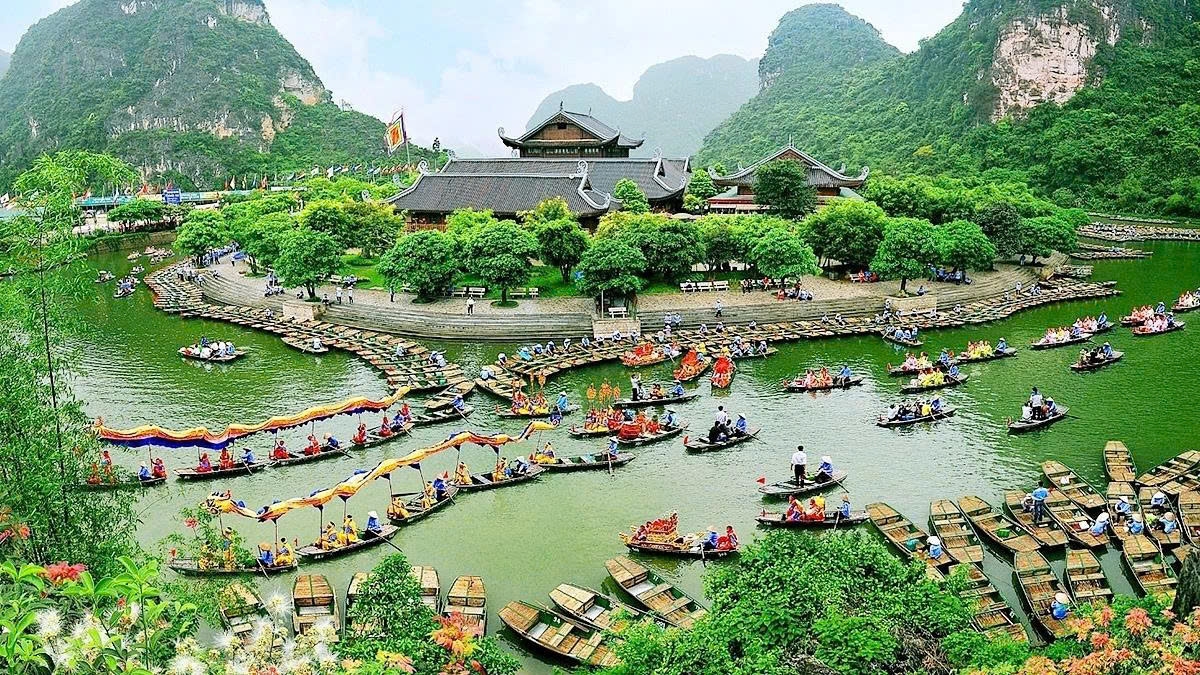Vietnam’s rich heritage and natural beauty lure int’l film productions
VOV.VN - In recent years, Vietnam has emerged as a promising destination for international film crews, thanks to its diverse natural scenery, rich cultural identity, competitive production costs, and a growing pool of skilled local filmmakers.

Da Nang city made a striking appearance in the Hollywood action film The Protégé, showcasing the city’s dazzling Dragon Bridge and modern international airport. More recently, the popular Korean drama Taxi Driver 2 featured scenes filmed in Ho Chi Minh City, Ha Long, and Da Nang, generating excitement among both Vietnamese and foreign audiences.
Ninh Binh, home to the UNESCO-listed Trang An Scenic Landscape Complex, continues to impress with its majestic limestone mountains, mysterious cave systems, and iconic spiritual landmarks such as Bai Dinh Pagoda and the ancient capital of Hoa Lu. This province has served as the backdrop for American blockbuster Kong: Skull Island, as well as Vietnamese productions like Blood Letter and Tam Cam: The Untold Story.
Phu Yen, which was catapulted to fame after the hit Yellow Flowers on the Green Grass, also consistently ranks among the top localities with the highest Production Attraction Index (PAI). In 2024 alone, it welcomed six film crews, and its romantic coastal beauty was once again highlighted in the recent film Once Upon a Love Story.
According to Nguyen Trung Khanh, director of the Vietnam National Authority of Tourism, Vietnam offers not only breathtaking landscapes but also rich cultural diversity. With 54 ethnic groups living together, the country is a fertile ground for unique cinematic storytelling, demonstrating traditional customs, festivals, cuisine, costumes, and architecture.
Moreover, Vietnam’s competitive production costs are a major advantage. The country has a young, dynamic, and well-trained film workforce, including assistant directors, cinematographers, lighting technicians, set designers, and production coordinators who are capable of working with international teams. Expenses related to labour, accommodation, transport, and logistics are relatively low, enabling producers to optimise budgets and invest more in creativity.

Associate Professor Dr. Do Lenh Hong Tu, president of the Vietnam Cinema Association, emphasised that in order to attract more international productions, Vietnam must strengthen key areas, including large-scale studio infrastructure, advanced technology, a professional workforce, convenient transportation, attractive incentives, a safe production environment, and transparent and efficient legal procedures.
Nguyen Chau A, CEO of Oxalis Adventure and a key figure behind bringing the blockbuster Kong: Skull Island to Vietnam, noted that clear, well-defined incentive policies, especially for global-scale film projects, are essential to help promote the country’s image on the international stage.
He also highlighted the need for proactive outreach to filmmakers through conferences, film festivals, and promotional events. Organising fam trips specifically for directors, producers, and film crews to visit high-potential locations would allow them to experience the country’s cinematic landscapes and production services firsthand.
Coordinated efforts between local authorities, tourism operators, and the Ministry of Culture, Sports and Tourism to promote Vietnam as a filming destination will help elevate the country’s standing in the global film production landscape.
Thanks to these ongoing efforts, Vietnam is steadily establishing itself as a prime filming destination, where stunning landscapes not only enhance cinematic storytelling but also foster cultural exchange and promote the country's image on the global stage.





